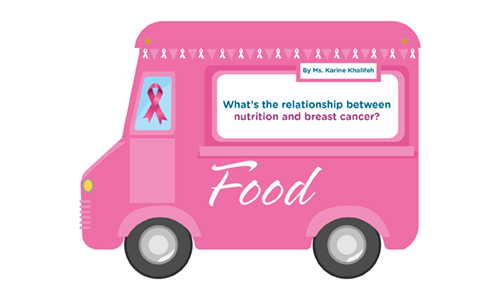


Your diet can play a great role in keeping you healthy and help avoid breast cancer. There are many nutrition and lifestyle changes women can make to help increase their protection from breast cancer.
Weight, body fat mass, visceral fat mass and the quality of food women eat can all effect the risk of developing breast cancer.
Being overweight increases, the risk of developing breast cancer especially post menopause. It is recommended to lose or maintain a healthy weight during this period through exercise (3-4 times per week) and a healthy diet plan.
Try to replace fats such as butter, full fat dairy, fatty meats and red meats, fried foods with olive oil, plant-based dairy (almond milk, coconut milk, oat milk), fatty fish (salmon, sardines), and nuts and seeds (almonds, walnuts, flaxseeds)
Some legumes and vegetables are a good source of protein, iron and folic acid without providing women with saturated fats. Choose wholegrains and legumes such as spinach, Kale, beans, and lentils.
Try to include the rainbow foods including berries, dark green leafy vegetables, artichoke, bell pepper, turmeric, citrus fruits, green tea, and spices such as cinnamon, clove, saffron, thyme.
Refined sugars increase levels of insulin and thus increases weight thus increasing the risk of breast cancer. Moreover, limit intake of artificial sweeteners such as aspartame, sorbitol, sucralose and maltitol.
Women especially at menopausal age are at higher risk of developing vit D and calcium deficiency which would put them at higher risk for osteoporosis. Increase intake of fatty fish such as salmon, eggs, yogurt and mushrooms which are good sources of vitamin D.
2-3 servings per week
-Aluminum: replace canned foods with glass container stored foods, aluminum foil with glass covers, anti-perspirant deodorants with aluminum free organic deodorants, coffee capsules with glass stored instant coffee.
-Mercury: Avoid big fish such as tuna and mackerel. Change teeth feelings into ceramic white fillings.
-Cadmium: Avoid smoking and second-hand smoking. Moreover, keep electronics (cellphones and laptops) away from bed.
